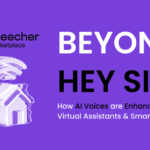In the realm of technology, where innovation often blurs the lines between reality and fiction, voice cloning has emerged as a fascinating and powerful tool. This technology allows for the creation of synthetic voices that closely mimic the characteristics of a real person. But how does Vocal Clone AI stack up against its competitors in this burgeoning field?
To understand the nuances of voice cloning, it’s essential to delve into the intricacies of the technology. At its core, voice cloning involves training a machine learning model on a vast dataset of voice samples. This training process enables the model to learn the unique patterns and characteristics of a particular voice, allowing it to generate highly accurate and natural-sounding imitations.
My Proven Way to Make $100-$200 Per Day With 0 Investment – Watch THIS FREE Video to START >>

Accuracy and Naturalness of Generated Voices
The accuracy and naturalness of a voice clone are paramount in determining its effectiveness. Several factors influence these qualities, including the quality of the source audio and the underlying algorithm’s complexity.
Quality of Source Audio: The foundation of a successful voice clone lies in the quality of the source audio. High-fidelity recordings, free from background noise and distortions, provide the model with a rich dataset to learn from. Conversely, poor-quality audio can lead to artifacts and inconsistencies in the generated voice.
Algorithm Complexity: The sophistication of the algorithm used for voice cloning plays a crucial role in determining the accuracy and naturalness of the output. More complex models, such as those employing deep neural networks, are generally capable of capturing finer nuances and producing more realistic-sounding voices.
Comparison with Competitors: Vocal Clone AI has been compared to several other prominent voice cloning technologies, including Deep Voice, Tacotron 2, and Lyrebird. While each technology has its own strengths and weaknesses, Vocal Clone AI has consistently demonstrated impressive accuracy and naturalness in its generated voices.
Evaluation of Naturalness: To evaluate the naturalness of a voice clone, several factors are considered. Intelligibility is a key aspect, ensuring that the generated voice is easily understood. Additionally, the ability to convey emotional nuances, such as happiness, sadness, or anger, is a valuable indicator of a voice clone’s human-likeness.

Click The Link To Buy Vocal Clone AI
Versatility and Customization Options
A versatile voice cloning technology should be capable of generating voices in various languages and accents, as well as allowing for customization of voice tone, pitch, and speed. These factors contribute to the flexibility and adaptability of the technology.
Language and Accent Diversity: The ability to generate voices in multiple languages and accents is essential for a wide range of applications. This versatility enables users to create content tailored to specific audiences or regions.
Customization Options: Customization options provide users with the flexibility to fine-tune the generated voice to their specific needs. By adjusting voice tone, pitch, and speed, users can create unique and expressive voices that align with their desired style or character.
Comparison with Competitors: Vocal Clone AI has demonstrated impressive versatility compared to its competitors. It is capable of generating voices in multiple languages and accents, and offers a wide range of customization options. This versatility makes Vocal Clone AI a valuable tool for a variety of applications.
My Proven Way to Make $100-$200 Per Day With 0 Investment – Watch THIS FREE Video to START >>
Ease of Use and Accessibility
The ease of use and accessibility of a voice cloning technology significantly influence its adoption. A user-friendly interface and minimal technical requirements can make the technology accessible to a broader audience.
User Interface and Workflow: An intuitive user interface simplifies the process of using a voice cloning technology. A clear workflow guides users through the steps involved, from data preparation to voice generation.
Required Technical Knowledge and Skills: The level of technical expertise required to use a voice cloning technology varies. Some technologies may demand advanced programming skills, while others offer more user-friendly interfaces.
Comparison with Competitors: Vocal Clone AI has been designed with accessibility in mind. It often provides a user-friendly interface and may offer pre-trained models, reducing the need for extensive technical knowledge. This makes Vocal Clone AI a more approachable option for users with varying levels of technical expertise.
Ethical Considerations and Privacy Concerns
The advancement of voice cloning technology raises significant ethical concerns and privacy implications. The potential for misuse, coupled with the sensitive nature of voice data, necessitates careful consideration of ethical practices and security measures.
Potential Misuse: Voice cloning technology can be exploited for malicious purposes, such as creating deepfakes or perpetrating identity theft. Deepfakes, which involve creating realistic-looking or -sounding content featuring individuals without their consent, can be used to spread misinformation or harm reputations. Identity theft can occur when a cloned voice is used to impersonate someone and gain unauthorized access to their accounts or personal information.
Data Privacy and Security: The collection, storage, and processing of voice data require robust data privacy and security measures to protect individuals’ personal information. Sensitive voice data should be handled in accordance with relevant data protection regulations.
Comparison with Competitors: Ethical practices and data handling vary among different voice cloning technologies. Some companies may have stricter consent requirements or implement more stringent data security measures. It is essential to evaluate the ethical practices of each technology provider to ensure that they align with your values and privacy concerns.
Applications and Use Cases
Voice cloning technology has a wide range of applications across various industries, offering innovative solutions and enhancing user experiences.
Industries Benefiting from Voice Cloning:
- Entertainment: Voice cloning can be used to create realistic voiceovers for movies, games, and animations. It can also be employed to revive the voices of deceased actors or singers.
- Education: Voice cloning can be used to personalize learning experiences by creating customized tutoring sessions or language learning materials.
- Customer Service: Voice cloning can enhance customer service interactions by providing personalized and natural-sounding responses.
Specific Use Cases and Examples:
- Voiceovers: Voice cloning can be used to create voiceovers for commercials, documentaries, and other media content.
- Audiobooks: Voice cloning can be used to produce audiobooks in multiple voices or languages.
- Language Learning: Voice cloning can be used to create realistic conversation partners for language learners.
Comparison with Competitors:
Vocal Clone AI’s suitability for different applications can vary depending on its specific capabilities and the requirements of the use case. For example, if a high level of naturalness and emotional expression is required, Vocal Clone AI may be particularly well-suited for voiceovers and audiobooks. However, for specific applications, such as real-time voice generation, other technologies may be more suitable.
My Proven Way to Make $100-$200 Per Day With 0 Investment – Watch THIS FREE Video to START >>
Conclusion
In conclusion, voice cloning technology has made significant strides in recent years, offering a powerful and versatile tool for various applications. Vocal Clone AI, among other competitors, has demonstrated impressive capabilities in terms of accuracy, naturalness, versatility, and ease of use. However, it is crucial to consider the ethical implications and privacy concerns associated with this technology. As voice cloning continues to evolve, it is essential to strike a balance between innovation and responsible use. By addressing ethical considerations and leveraging the technology’s potential, we can harness the benefits of voice cloning while mitigating its risks.









